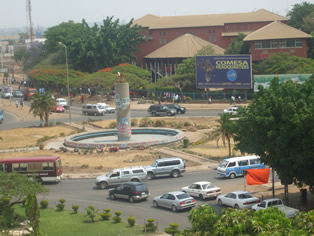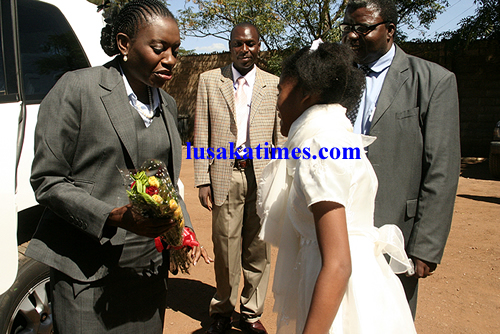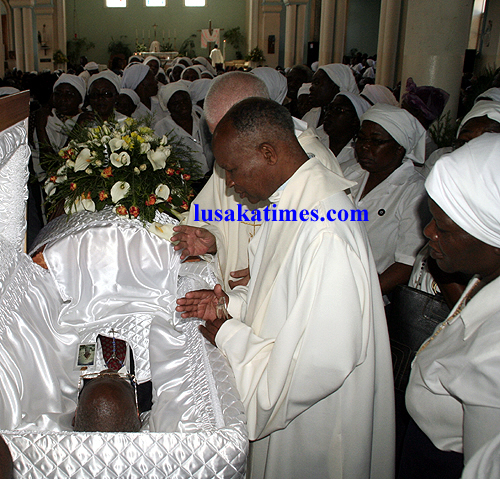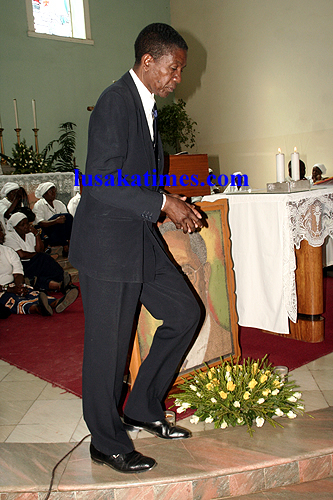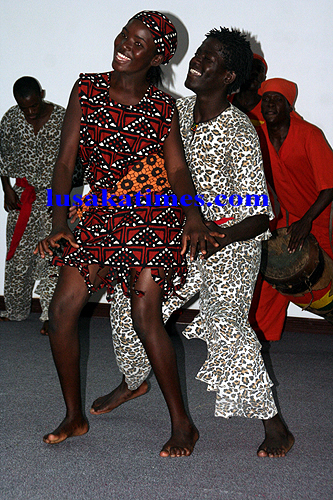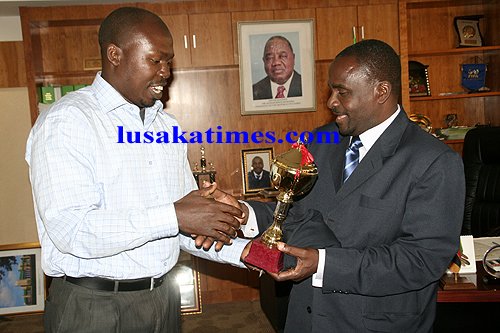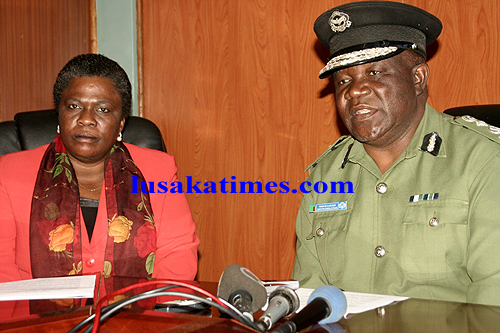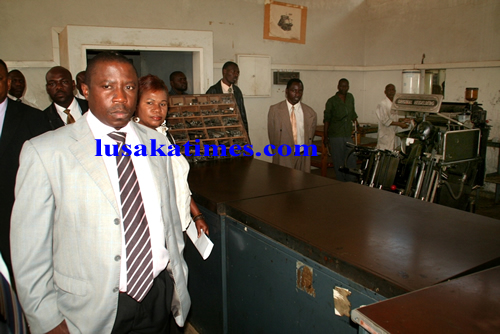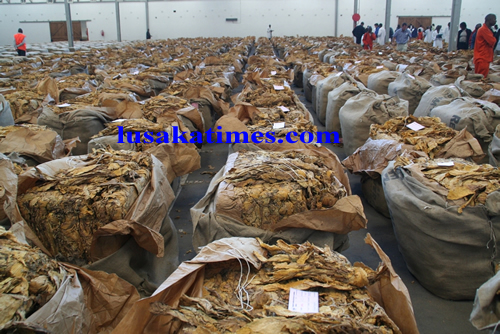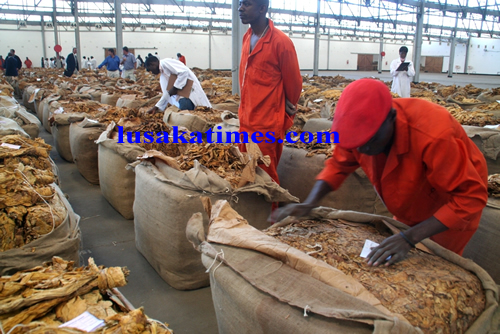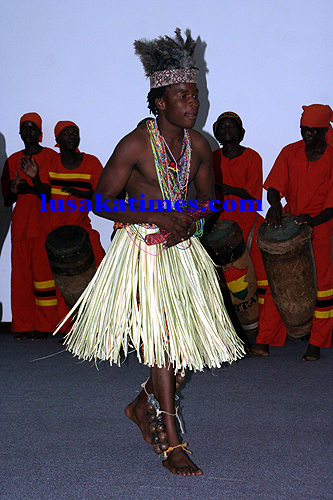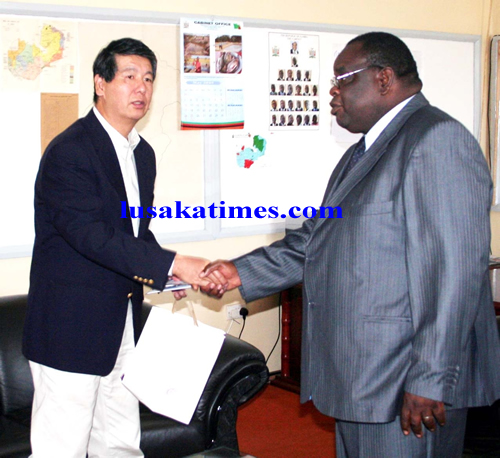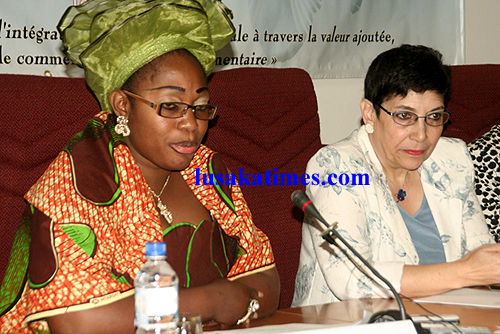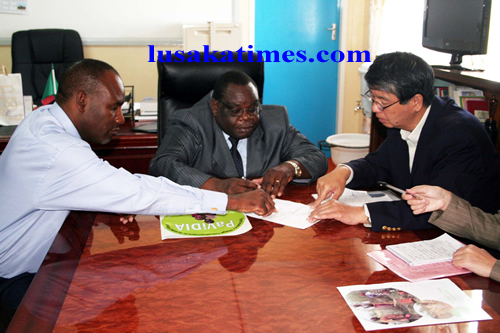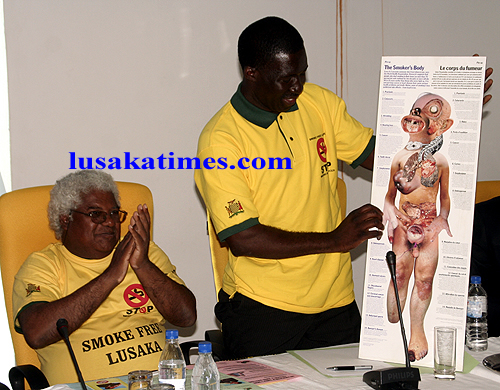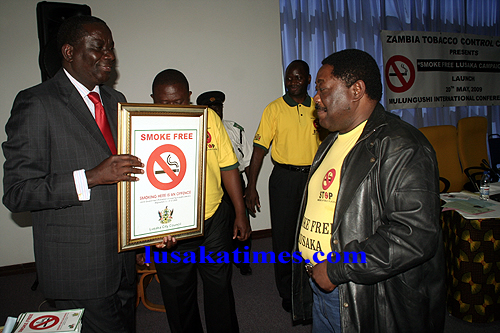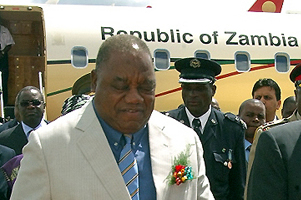
President Rupiah Banda says the re-election of Malawi’s President, Bingu wa Mutharika in the country’s just ended presidential elections was an indication that Malawians were satisfied with his performance in the previous term of office.
President Mutharika was sworn in to lead Malawi for the second and final five year term of office after being declared winner of the May 19, general election by the Malawi Electoral Commission chairperson, Justice Anastasia Msosa .
In the first four years of Dr. Mutharika’s governance, the economy of Malawi grew by an average of 7.5 per cent per annum while in 2008, the economy grew by over 9 per cent.
“It is a great thing for the people of Malawi. Before we used to analyse Malawi by provinces but this time you have shown us that you are satisfied with the work of a particular president in all the regions in Malawi,” Mr Banda told local journalists in Blantyre yesterday.
He noted that the fading away of regionalism in the way people voted in the past was commendable.
Mr. Banda pointed out that this development was encouraging, adding that Zambia would learn a lot of lessons in terms of political and economic development from the Malawian government.
He further urged the people of Malawi to be strong because this was Zambia wish.
President Mutharika garnered a total of 2,730,630 votes against his closest rival, John Tembo who had polled 1,270,057 votes. This was out of the 93.25 per cent of the confirmed information from 3,634 polling stations out of the 3,897 stations across the country.
There are currently nearly six million registered voters in Malawi, a country lying on an area of 118,480 square kilometres and a population of over 13 million people.
And President Mutharika pledged in his acceptance and inaugural speech that he would embrace all Malawians, including opposition political parties, in governance in order to guarantee and foster social, economic and political development of Malawi.
He said amid applauses from thousands of people who gathered at the ceremony that dialogue and reconciliation among all Malawians, and unity of common purpose was an important factor that would help develop the economy of the country further.
He outlined his government’s development agenda and strategies, among them prioritizing agriculture development, increasing energy generation, improving road network and transportation, education and health sectors.
Yesterday, the Common Market for Eastern and Southern Africa (COMESA), the European Union and the African Union election observation missions said in their preliminary findings of the elections that the election was free and fair and reflected the will of the people of Malawi.
The European Union (EU) Election Observation Mission and the Common Market for Eastern and Southern Africa (COMESA) election observer missions have also declared the election as free and fair, adding that they were held under a tranquil and peaceful environment.
Head of COMESA Election Observer Mission, Otema Musuka, said at a press briefing here today that the mission did not witness any occurrence that could have compromised the integrity of the votes cast.
“Looking at the country as a whole and taking into consideration the foregoing, the mission has come to the conclusion that the 2009 presidential and parliamentary elections for the Republic of Malawi took place in an environment of peace and tranquility,” Mr. Musuka said.
Mr. Musuka noted that the election took place in a transparent environment that was secure enough to guarantee the freedom of the vote and respect the will of voters.
“The mission, therefore, considers that the votes cast and declared thus far as a true reflection of the will of the people of Malawi in the 2009 presidential and parliamentary election,” he added.
He congratulated the people of Malawi for the peaceful election and a huge turn out to cast the votes, which he said was an important ingredient to the development of democracy.
EU Election Mission Chief Observer, Luisa Morgantini, said the elections were held in a manner where fundamental freedoms and rights of assembly, expression and movement were respected.
“The people of Malawi turned out to cast their ballots in high numbers demonstrating an awareness and commitment to an election which represents a step forward the consolidation of democracy,” she said.


